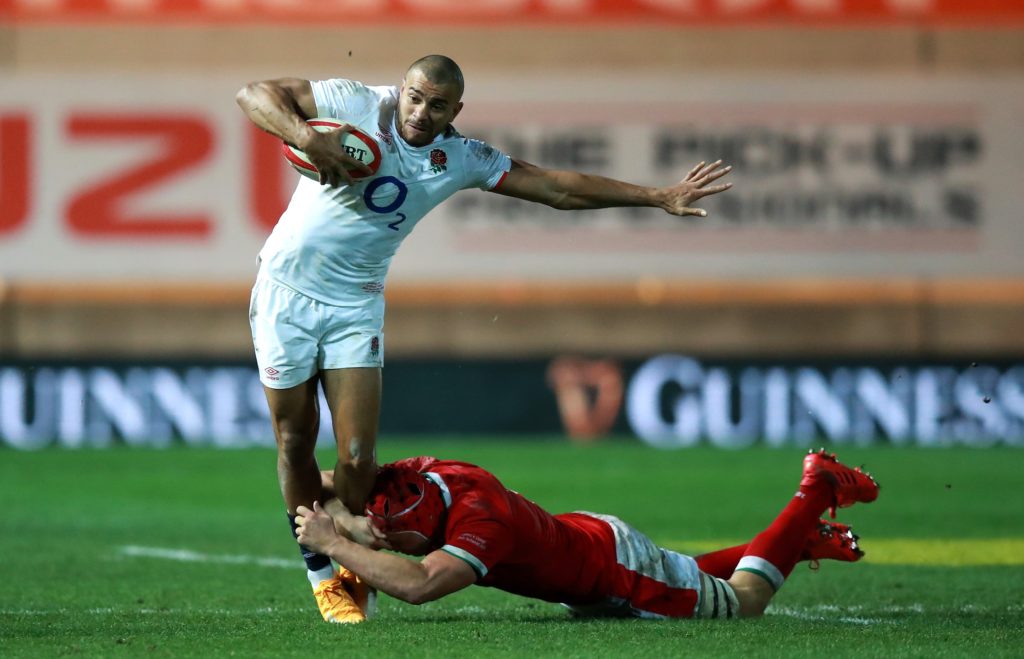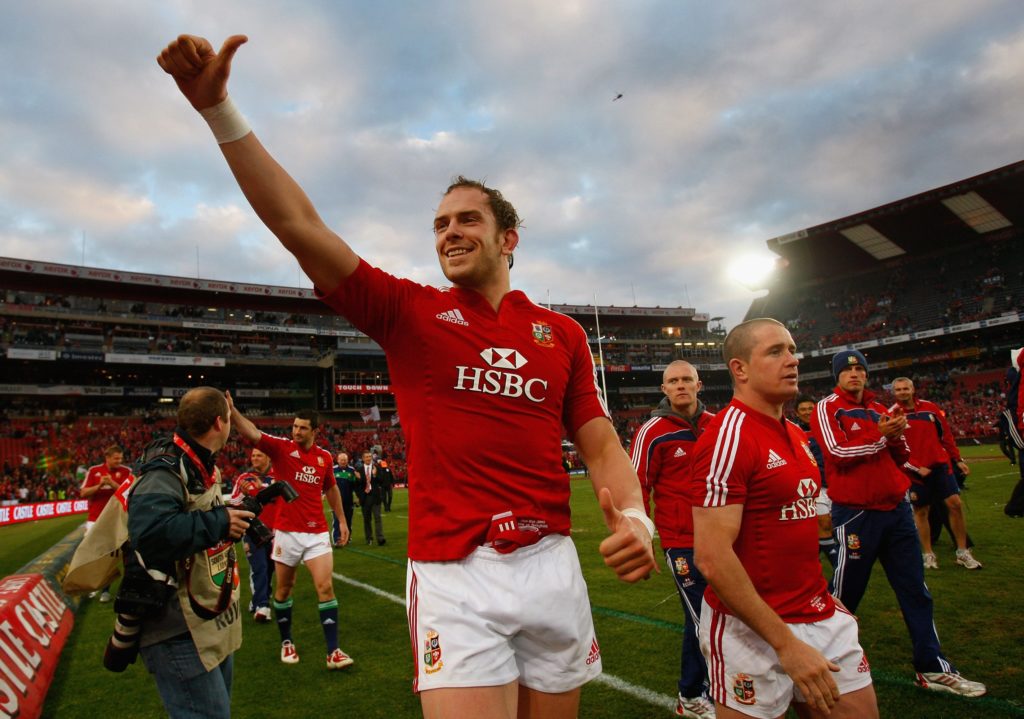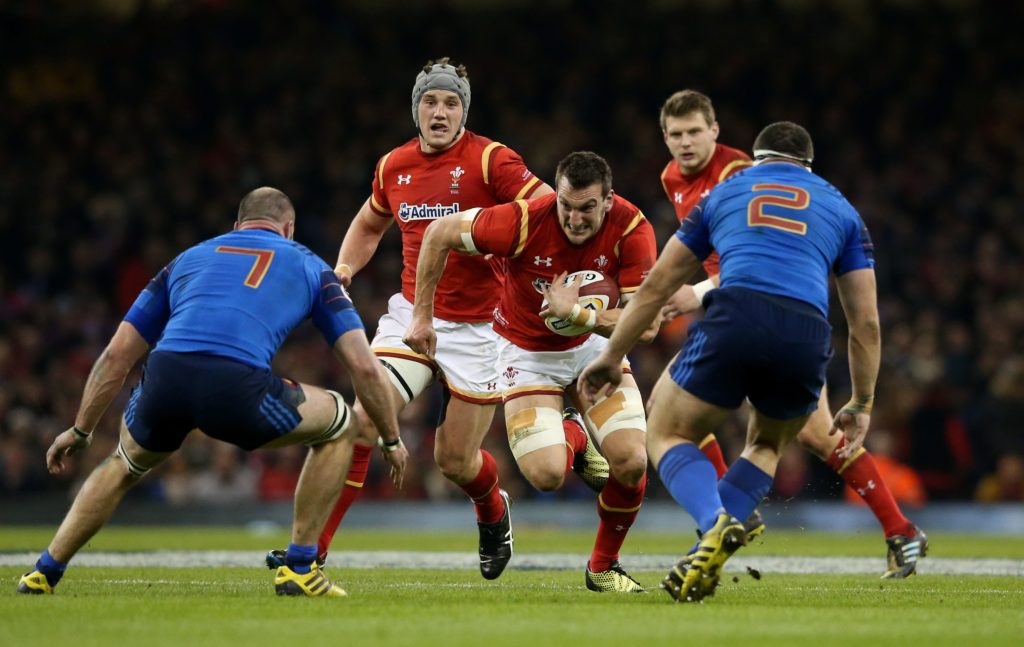On November 27, 2019, barely a year ago, this writer was hosting the PRO14 launch at the Cardiff City Stadium. It was during those halcyon days when hundreds of people could happily mingle, devouring free nibbles, sipping Guinness and standing as close to one another as they liked. The event included several Q&A sessions with some of the league’s most bankable stars; representatives of the regions, clubs and provinces that would help promote the competition, generate column inches, and sprinkle a bit of stardust.
James Hook, Ryan Wilson, Scott Fardy and Rhys Patchell were among those to grace the stage. International players with bucketloads of caps and reputations that preceded them. Players with a bit of hinterland to explore, whose backstories you could delve in to.
Then it came time to introduce the representative from Cardiff Blues. “Ladies and gentlemen would you put your hands together for… James Botham.” The name sounded familiar, for obvious reasons, but only the most diehard of Cardiff Blues supporters would have been able to put a face to it. He’d made his debut off the bench in January of that year, and had made just two appearances since. He proved to be a charming, eloquent guest, more than comfortable in the spotlight, but his presence there seemed a mystery to everyone including the man himself.
“They were struggling to find someone to get there and I was literally the last resort, so I just went along for the experience,” Botham recalls with a knowing grin.
“At that point I didn’t even think I was within a shot of getting in the Blues team.”
Spool forward to November 28, 2020, almost exactly a year to the day, and Botham is lining up for Wales against England. The biggest fixture in any Welshman’s career, not least a Welshman who is the progeny of one of England’s most celebrated sporting icons. We often talk exaggeratedly of ‘meteoric’ rises, but Botham’s progress during those 12 months was astonishing. Especially when you consider that rugby was suspended for five of them.
From a wide-eyed academy graduate, bewildered at being asked to represent his club at a media event, to lining up against arguably the best back row in world rugby. When Botham had been pressing the flesh at the PRO14 launch, Tom Curry, Sam Underhill and Billy Vunipola were recovering from a World Cup campaign that saw them blow away New Zealand in the semi-finals, before eventually succumbing to South Africa. Now they were on the same platform, sharing the same field.

The England game came a week after Botham’s Test debut against Georgia. His call-up came the Sunday before while he was relaxing in the Cardiff flat he shares with his girlfriend Izzy, and their French bulldog, Roscoe. It was 9pm, and he was contemplating an early night ahead of the Blues’ game against Benetton Treviso the following day. His mobile trilled and the number that flashed up belonged to one of his illustrious predecessors in the Cardiff Blues No7 jersey. It was Martyn Williams, now the Wales team manager.
“I had no idea that would happen,” he remembers with a hint of disbelief still evident in his voice. “It was ‘Nugget’, and he told me to pack a a bag and report for training the following day. It was the biggest shock that has ever happened to me. No sooner had I hung up the phone, I had to ring back and go, ‘Oh God, what about the Treviso game tomorrow?’
Williams reassured him that the Treviso match was no longer a priority and that the Blues had been informed. The second he hung up, he dropped his phone and allowed it to sink in.
“I’d had one week’s training prior to that, which was a taster just to see what it was like. They’d had a few injuries and I just came in to make up the numbers and hold a few tackle bags. It was a great experience but I went back to the Blues and didn’t think anything of it, especially with the back row that Wales have got.”
I’m proud of the connection. If he hadn’t done what he’d done, I wouldn’t be in the position I’m in now.
It hasn’t escaped Botham’s notice that he plies his trade in the most competitive position in Wales, which makes his ascension to the Test side even more remarkable. Justin Tipuric, Josh Navidi and Ellis Jenkins have all captained Wales. Two of them are at his club. So too is Olly Robinson who, for two seasons, has been either at the top or very near the top of the turnover charts. Then there are the next in line. Botham name-checks players such as Josh Macleod, Taine Basham and Ollie Griffiths, all of whom have been groomed for greatness. Yet Botham is now the man in possession of the jersey. Injuries have clearly played their part, but he has risen to the occasion, filling that Welsh jersey and looking every inch the Test player.
The naysayers worried that Wales would be buried under an avalanche of points against England, but the thrashing never materialised. That was in part due to the way Botham and his fellow forwards flung themselves into the battle. The Welsh back row had 85 caps between them that day, and 82 of them belonged to Taulupe Faletau, but they played with a thunderous commitment and ferocity that belied their tender experience.
It wasn’t long ago that Botham was sat in his Sixth Form Common Room at Sedbergh School watching the likes of Faletau running out for Wales during the World Cup. He finds it utterly surreal that he’s now sharing a changing room with these men. Men that, until recently, were idols of his. If there’s one player whose status tends more towards the mythical than the real in Botham’s mind, it’s Alun Wyn Jones. More Mount Rushmore totem than actual human being. And an early encounter with the world’s most capped player left him in no doubt where he stood in the hierarchy.

“Alun Wyn is a really nice guy and he’s the best player, but I made the mistake of speaking when he was speaking. It was an accident – and I would never do it again. It was before the game against England, and we were going through a line out walkthrough.” The rest of the squad were in reverent silence, as Jones outlined the strategy, but Botham was not yet au fait with the etiquette. “I was asking a question to one of the other boys about tail-gunning, and he just… stopped. He looked straight at me and said, ‘You all right, Jim?’” His expression was enough to persuade Botham that he wasn’t enquiring about his welfare. “I went straight back into my shell, put it that way. I shut up and listened to every word from then on in. I should have waited and asked at the end.” Lesson learnt.
Jones has the same sort of iconic status in this era as Botham’s grandfather had in his. Both national treasures, both capable of transcending their sport. Such is Sir Ian Botham’s status that commentators and columnists alike have to continually suppress the urge to use the appellation ‘Ian Botham’s grandson’ when discussing James. There’s been a fair bit of virtue signalling on social media, with well-meaning supporters castigating such commentators for reducing James’s achievements to being the grandson of a famous cricketer. But James is far less bothered about it than some of these overzealous fans would imagine.
“I’m proud of the connection. If he hadn’t done what he’d done, I wouldn’t be in the position I’m in now,” he says. “I wouldn’t have been able to come down to Cardiff and wouldn’t have had the privilege of him helping and supporting me. He worked his bollocks off to get where he did, so I want to strive to do the same. And if I have kids who go on to play and they’re referred back to me, then hopefully they’ll have someone to look up to and it will push them to aim higher. I want to be as good at rugby as my Grandad was at cricket, but I want to be known for my own thing. It doesn’t annoy me because I feel like I’m doing enough now to create my own name.”
I didn’t have that passion for England but, when Wales played, I had it. It meant something.
One thing James has managed to do is persuade the hugely patriotic Sir Ian to switch his allegiance when it comes to the oval ball. He reveals that while Grandad maintains he’s English through and through, and could barely contemplate supporting a team playing against England, on November 28 last year, as James belted out Hen Wlad Fy Nhadau, he did exactly that. And he wasn’t the only one.
“I’ve had a lot of family and friends contact me and say it was the first time they’ve ever supported Wales in anything. Hopefully they can get used to it,” says Botham. “If England were playing Wales when I was younger, I’d always support Wales. But even if England were playing another team, I wasn’t that bothered. I don’t know why, I didn’t have that passion for England but, when Wales played, I had it. It meant something. The little successes meant so much to everyone – and you feed off those little bits and the emotion.”
Which brings us to the question, why Wales? There are two players in the current Six Nations squad who have worn the white shirt of England in a senior match, and a few others who have been accused – rightly or wrongly – of playing for Wales out of convenience rather than a deeply held patriotic fervour. Despite his upbringing in Cumbria, no one can accuse Botham of being a fairweather Welshman.
“I was born in Cardiff and when we moved to Cumbria, I asked my parents if I could have the Welsh flag painted on my bedroom wall,” he says. “They commissioned an artist to come in and paint it, so it was a proper legit flag, about 6ft by 5ft, right at the end of my bed so it was the first thing I saw when I woke up. And for good measure, I had the three feathers painted above my headrest. That was done in black with a silver tint to it. I kept them there until I was about 16, when I started having parties and friends coming round. I thought I’d better cover them up then in case my mates thought I was weird, but it was always my ultimate dream to play for Wales.”
I don’t mind singing if I’ve had a few drinks, but when I’m sat there sober, having just played the game and I’ve got to remember the words in front of the boys, it’s not so appealing.
In that dream, Botham pictured himself running out into a frenzied Principality Stadium, in front of 75,000 full-throated supporters. An eerily empty Parc y Scarlets may have diluted the experience somewhat, but the unique circumstances had at least one saving grace: “We didn’t have the usual post-match function, so I didn’t have to get up and sing in front of hundreds of people. I sang Delilah in the changing room instead.
“I don’t mind singing if I’ve had a few drinks, but when I’m sat there sober, adrenaline rushing, having just played the game and I’ve got to remember the words and sing it in front of the boys, it’s not so appealing. My heart was pounding and I didn’t enjoy it, but had it been a normal game, with a crowd and the proper post-match function, I’d have had to get up and do it in front of a much bigger crowd. That would have been even worse.”
Unsurprisingly, Botham showed an aptitude for cricket as well as rugby while studying at Sedbergh School in Cumbria, and when he reached the age of 17, he sat down with Dad and Grandad for a chat about his future.
“They told me I had to choose, that I couldn’t keep playing both if I wanted to excel in one,” he says. “So I chose rugby in my last year. I didn’t play cricket at all, just concentrated on rugby and decided I’d like to try to play for the Blues.”

The Cardiff Blues defence coach, Richard Hodges, was made aware of Botham’s potential and invited him to Cardiff for a trial, after which he was offered a place in the academy. It was there that he got to work with his idol.
“When I first came to the Blues, the one name I was talking consistently about to my family was Sam Warburton,” he says. “When we were told, as academy boys, that we’d have a mentor, I was praying it would be ‘Warby’. I didn’t have him initially, but I dropped a few hints, and in my second year I did. He was always the kind of guy you could speak to. He’d give you tips and help you out. During his last year, I partnered up with him for pre-season, which was a great experience. He told me to be the best version of myself and not to try to be anyone else. It was a great piece of advice, and it’s stuck with me.”
I don’t want to be too much heavier because, in my eyes, I’d lose speed, agility and fitness; all things that are key to the way I play.
Warburton may be gone now, but there remains a glut of Test-quality back rowers at the Blues with whom Botham is vying for the jersey. And it’s there he’ll be focusing his attention having been left out of this week’s Six Nations squad. The return to fitness of Macleod and Navidi was always going to give Wayne Pivac a back-row conundrum, and Botham – along with club colleague Shane Lewis-Hughes – was one of those who missed out. But his encouraging displays in the Autumn Nations Cup mean he remains very much on the radar, and Pivac referred to him in this week’s press conference as a player for the future, adding that Macleod was “just ahead on physicality”. It’s a point not lost on Botham.
“You could say I’m punching above my weight in the sense that I’m not your back row who’s going to be 110kg running around smashing people. I want to be 105kg tops. I don’t want to be any more than that because, in my eyes, I’d lose speed, agility and fitness; all things that are key to the way I play. The way the game is going, it’s key to have that agility and athleticism.”
If his Cardiff Blues coach, Richie Rees, is right, Botham is ticking plenty of boxes. “He’s as athletic and powerful as they come for someone of his size,” says Rees. “It’s something we don’t have an awful lot of in our squad. He’s outstanding on both sides of ball. In defence, he dominates collisions and, in attack, his ability to stay on his feet after the initial collision is a stand-out, along with his lateral movement and dynamism. Technically he’s very efficient too, and can catch and pass well under pressure.”
So, he has the tools and a burgeoning reputation to match, and while his omission on Wednesday was a huge disappointment, he remains sanguine.
“I never feel secure in any squad because, as soon as you do, you stop pushing yourself,” he says. “I have got to keep working and keep playing at the top of my game to even have a shot at getting back in. I just have to go out on the field with the Blues, play as well as I can and hope I get the call-up. If I do, I do; if I don’t, I’ll find out what I need to do better. You’re only as good as your last game.”
2020 will be recorded in history as one of the worst on Planet Earth but, for Botham, it’s paradoxically one he’ll remember with warm positivity. He looks almost guilty when he says: “It’s surreal the way this whole year has played out, and it sounds weird to say that the best year of my life was 2020. Not many people can say that given what has gone on with the pandemic and everything, but I’m smiling away, which feels strange.”
Something else that might feel strange is the return of Dai Young to the Cardiff Blues. He won’t have worked with Botham Jr before, but shared a changing room with James’s father, Liam, when the two of them played for the Blue and Blacks in the late 1990s. James hopes Young’s return will provide a bit of stability during a time of flux. The Cardiff Blues have been a nomadic tribe of late, switching grounds and training bases. Their Arms Park home is about ready for their return, and Young will surely help deliver a hard-nosed winning mentality to go with their undoubted flair and enterprise.
It feels like a fresh start, and the man they call ‘The Duke’ is starting to emerge from the shadow of his famous surname and carve his own path.
More stories by Ross Harries
If you’ve enjoyed this article, please share it with friends or on social media. We rely solely on new subscribers to fund high-quality journalism and appreciate you sharing this so we can continue to grow, produce more quality content and support our writers.



Comments
Join free and tell us what you really think!
Sign up for free